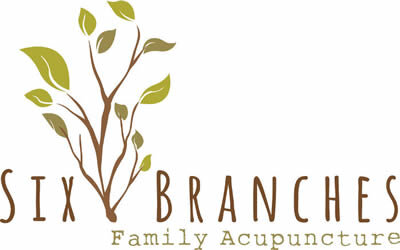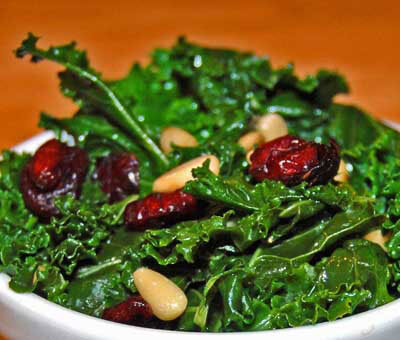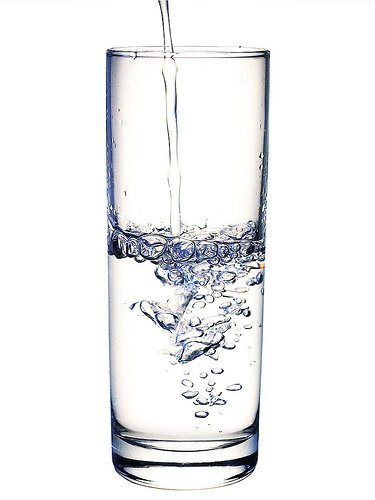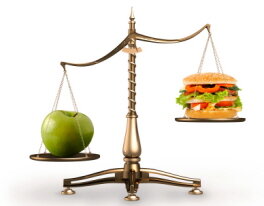In my last post about The China Study, I mentioned that I prefer to eat in a way that takes my cravings into account, so I'm following up here with some thoughts on that approach. Regular readers of this blog know that I'm not talking about "dieting". This is really about paying attention to your body and listening to its desires. This is also not about denying yourself foods that you crave, but about understanding the underpinnings of those cravings.
When you go to an acupuncturist, they might ask you if you have any food cravings. The idea is not to shame you or find out about your "guilty pleasures". In Chinese medicine, the nature of your cravings is diagnostic - it helps us understand where your imbalances are. A regular craving for sweets might signal a Spleen disharmony, while salty cravings might tell us that the Kidney is indicated. Many times, once we understand your cravings, they can be addressed by simply adding different foods to your diet.
Chinese Medicine views the body as a very intelligent entity. Your body is designed for survival. Given the right circumstances it can generally heal itself. It knows what it wants. The problem is not what the body is craving, but what happens when that message reaches the brain. Your organs do not send a message saying "Must. eat. burger. now." That's just what your brain interprets. In that case, what your innately intelligent body probably wants is amino acids (the building blocks of protein), salt, and a warming quality food. You could get all of those things from a meal of beans, rice, and leafy greens, spiced with ginger, plus you'd get a whole lot of fiber and nutrients in the process. Or, maybe today is a burger day, it's really not that deep. What's important is that you embrace your cravings.
Some Insight into Cravings:
Once you've embraced your cravings, you can try to understand them a little more. I've had many patients come to me and say "I'm always hungry - I eat but I'm always hungry". If this is true for you, it may be that you're eating plenty of calories, but not getting enough nutrition.Try adding fruits and veggies to each meal and snack and see if you're still hungry all the time. It's also important to recognize that there are different kinds of hunger. Are you actually bored? Is there a certain emotion that you avoid by eating?
Another thing your body may be crying out for is water. Many of us do not drink enough water and often our bodies don't tell us we're running low on water until we're already dehydrated. Whenever you have a strong food craving, especially a sugar craving, start by drinking a glass of water.
Which brings us to sweets. Who doesn't crave sweets once in a while? Patients often report that they crave sugar, but we all know that eating refined sugar isn't good for us. In fact, your organs do not crave a candy bar - they crave glucose (which fuels all your body's functions). Getting most of your glucose from refined starches and sugars will put you on an energy roller coaster and can lead to inflammation, diabetes, and a host of other health problems.If you're someone who has a regular sweet-tooth, try eating sweeter veggies, such as roasted sweet potato, beets, carrots, and winter squash, and carry an apple with you to snack on. You can also try keeping less dramatic sweeteners on hand, such as brown rice syrup and stevia. Try eating an apple or whole grain toast with brown rice syrup the next time you want to reach for the candy dish.
If you are having frequent cravings for salt, it's probably not the bag of potato chips that your body really wants. We all get a lot of salt in our food, but it's usually strictly sodium chloride (refined table salt). Our bodies actually need other salts and minerals as well. Using sea salt instead of refined salt, and adding more green leafy vegetables to your diet can help alleviate the craving for salt much more than those potato chips will.
If your craving is for foods that are fatty as well as sweet or salty (ice cream, bacon, etc) your body probably wants healthy fats. Try adding healthy fats to your diet, like olive oil, nuts, and avocados to give your body the extra boost it's looking for.
And finally, chocolate. Most people, and certainly most women know about chocolate cravings. Chocolate in its natural state has spicy and bitter qualities, which is why we have to dress it up with milk and sugar. Those spicy, bitter qualities really get the blood and qi moving. Before a woman's period, for example, many women have what we call 'Qi and blood stagnation'. Everything is just waiting for the hormones to shift and the blood to flow, and this can create a feeling of stuck-ness. Chocolate gets things moving so, even if your period hasn't started yet, it will help you feel better for a little while. When you notice a chocolate craving, know that your body wants to move. Sometimes you may decide to go for the chocolate, but if you can, get up, get out, and get some exercise as well!
The idea here is balance. I try not to follow every impulse for foods I know aren't good for me, but I also don't deny myself every time I have a strong craving. The important thing is that you notice your cravings and listen to them. I know that if I drink too much alcohol one night, for instance, I will crave both coffee and a fatty, protein-filled breakfast. That awareness helps me make better decisions about what I put in my body, but it also helps me feel ok about that egg and bacon breakfast that I might not have had on another day. Is there a certain time of day that you crave sugar? Do you crave sugar a while after a cup of coffee? Noticing your cravings and giving your body the healthy food it actually wantswill result in less intense cravings over time and will help you bring your body more into balance and health!
Have a regular craving I didn't touch on here? Leave a note in the comments section and I'll address it. Also, when I sat down to write this, I looked up other information about cravings, and found some great resources:
*a list of foods to try when you're having specific cravings, from a Naturopathic perspective. It gets more specific about the type of minerals you may be missing.
* a really thoughtful book by Joshua Rosenthal, the founder of the Institute for Integrative Nutrition. He is coming partly from a Chinese medicine perspective and goes into this topic more in depth than I have here. I especially like how he talks about the yin-yang spectrum of foods - that some foods are at the extreme ends of the spectrum and will cause more extreme cravings from the other end. For instance, a diet with a lot of refined sugar (extreme yin) will lead to cravings for red meat (extreme yang). The book is free, save the cost of giving your email address, which puts you on the school's active recruitment email list.
*an interesting breakdown of the different kinds of hunger from a nutritionist in Toronto
This work is licensed under a Creative Commons Attribution-NonCommercial-NoDerivs 3.0 United States License.
(Photo credit: D. Sharon Pruitt)






